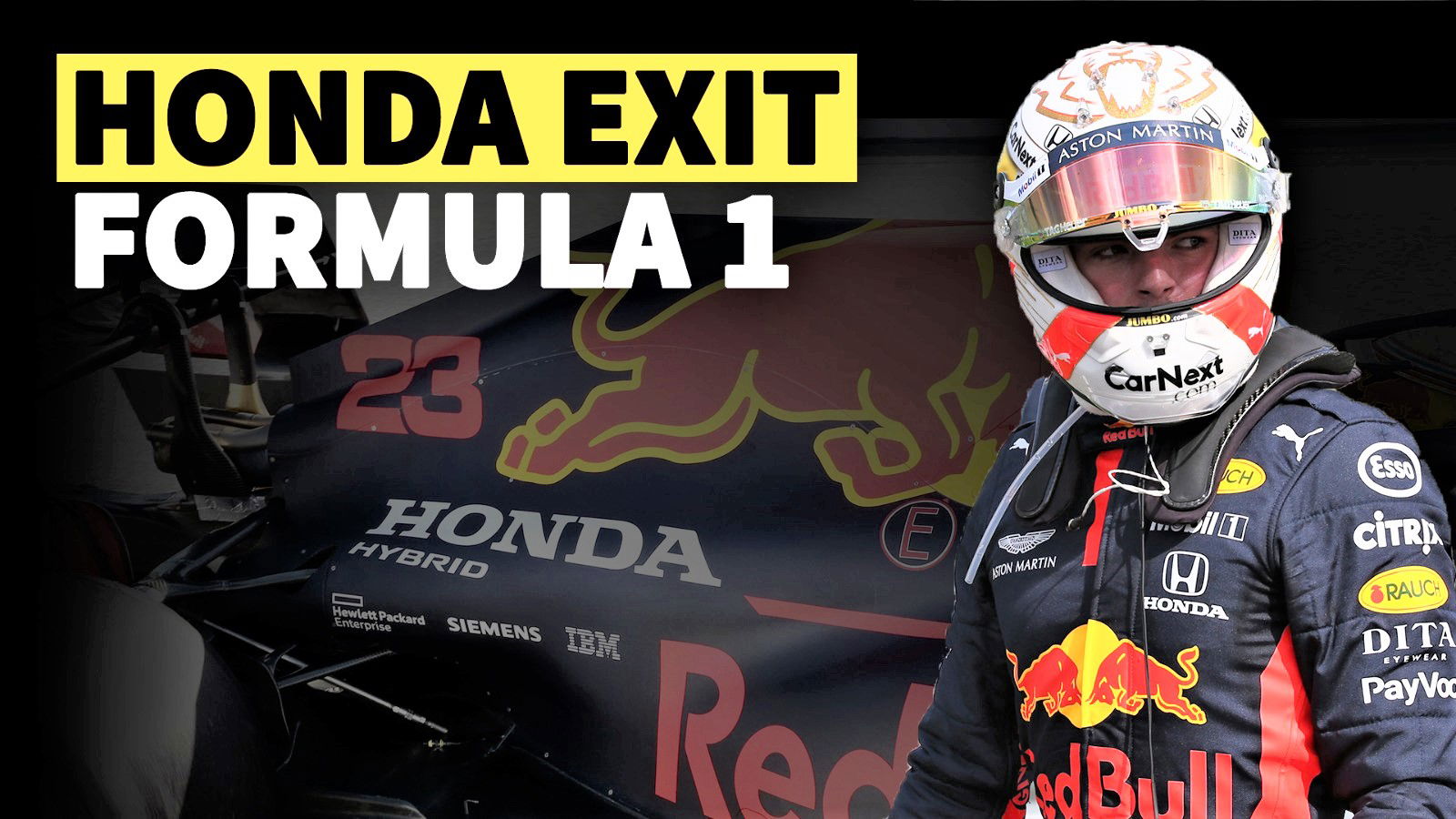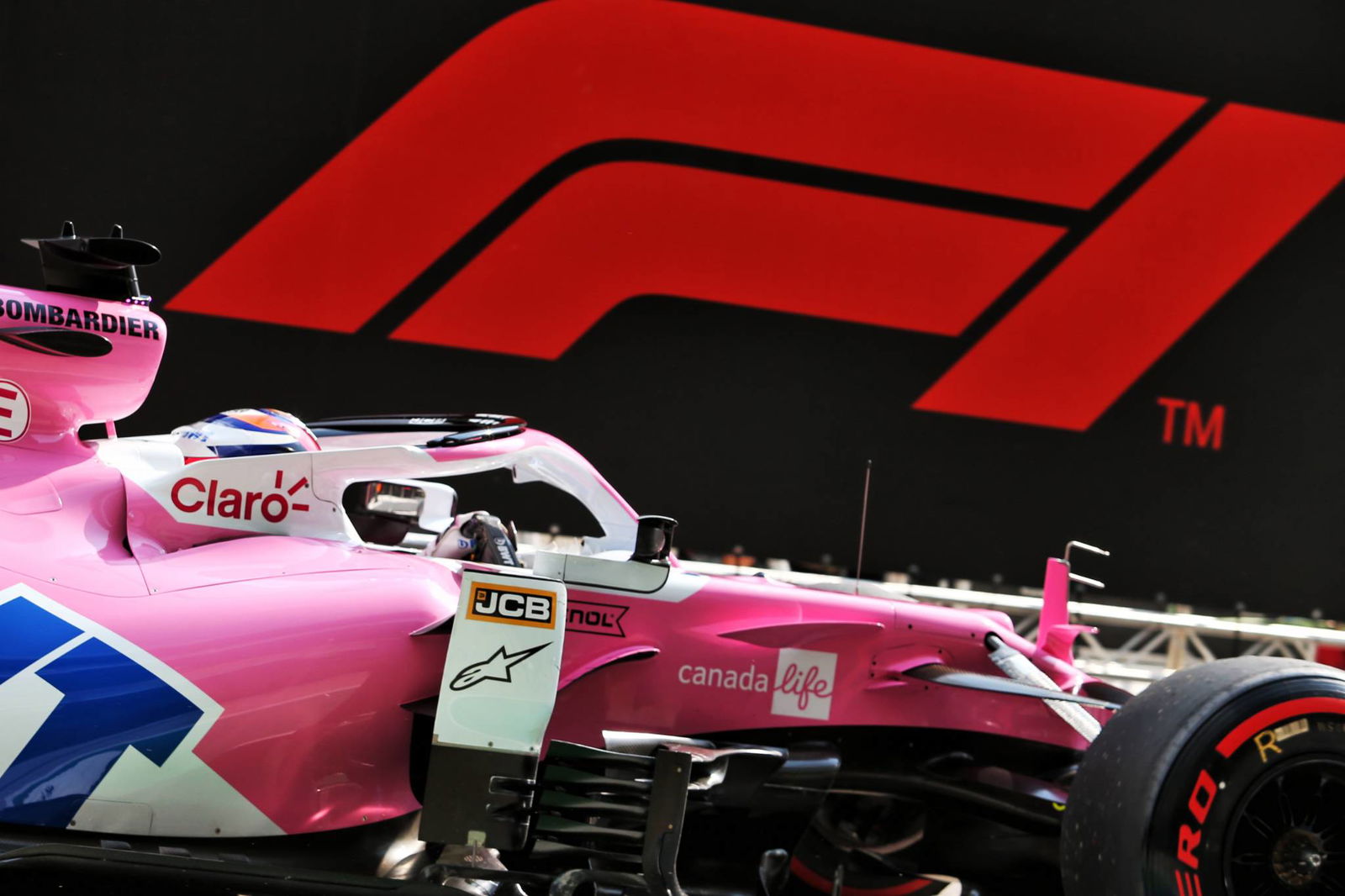Why Honda’s exit will set major alarm bells ringing for F1 too

The headline ‘Honda quits F1’ is certainly one we’ve heard before… about as often as we’ve heard ‘Honda returns to F1’.
Indeed, Honda - given its relative omnipresence in F1 for much of the last 70 years - has more than any other company popped in and out of the series, dabbling as both a constructor and more formidably as an engine supplier.
And yet while this on again, off again relationship with F1 suggests it could yet be prone to sending the odd drunken text at 3am wanting it back - jokes aside - this really could be it for Honda in the upper echelons of four wheel motorsport.
Frustration for Red Bull certainly in the short-term, but the implications of Honda’s exit this time have far reaching consequences for the sport and it’s no exaggeration to say it could mark a shift in thinking over F1’s future.
Whereas previously financial constraints (such as in 2008) have been a well-worn trope of big budget manufacturer exits in the past, Honda’s honest and revealing reasons for departing this time are a subtle but damning indictment of the widening gap emerging between the sport and how it filters into a core business of shifting cars.
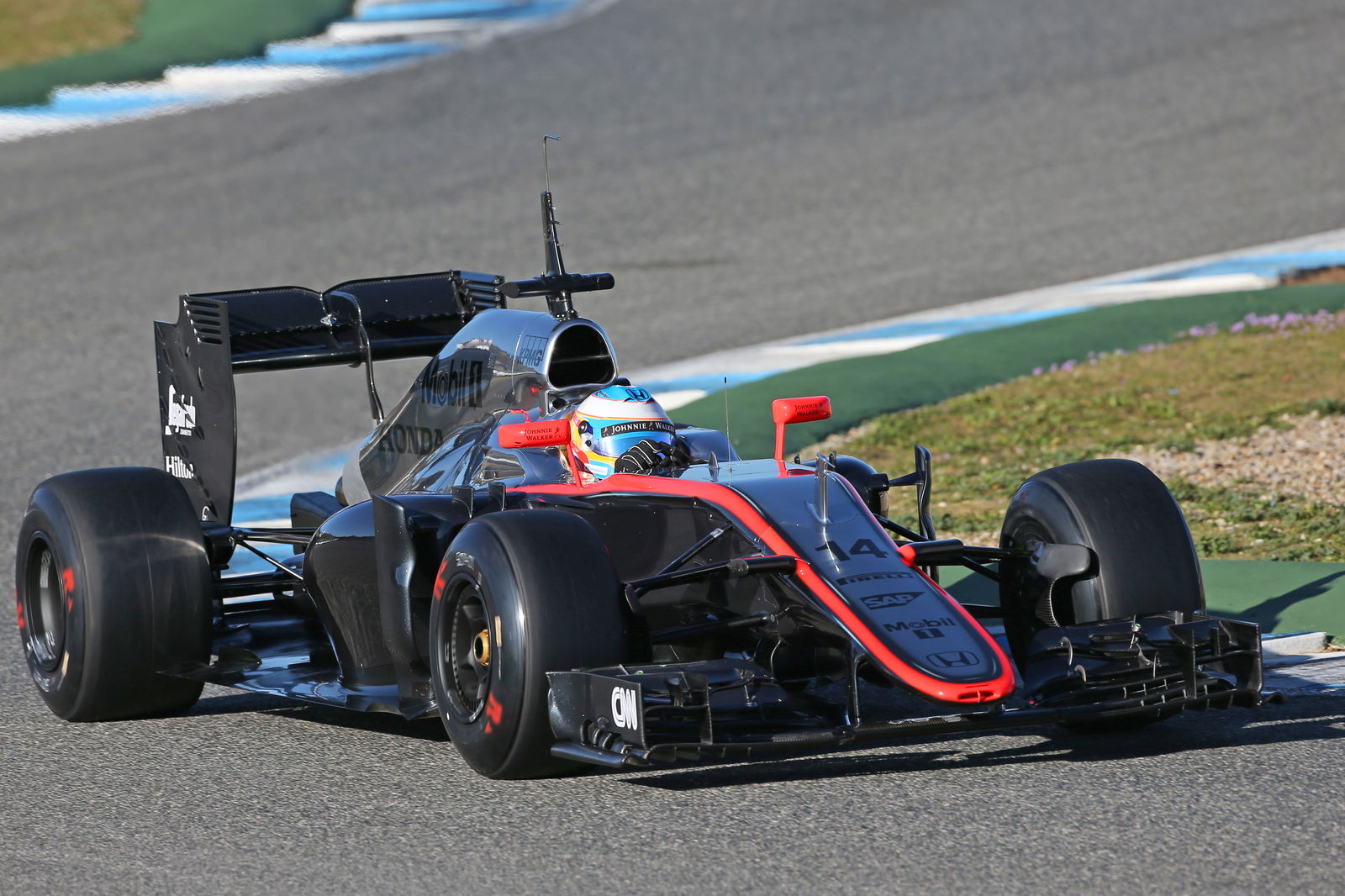
From chump to champ to checking out - why would Honda leave now?
For all intents and purposes, of the four manufacturers competing in F1 it was Honda that was probably most likely to leave, though Renault ran it a close second until it recently committed to 2025. Nonetheless, the timing of the announcement is telling.
Granted, the Honda F1 project hasn’t exactly been a pleasurable experience at times as demonstrated by a three-year spell working with/against McLaren that barely prompted a smile, much less results.
However, it’s revived vigour alongside Red Bull has positioned Honda as a genuine force again, so much so it is easy to forget just how far it has had to come between 2015 - when it was breaking down quicker than it could reach 100mph - to now winning races.
So why - after navigating a minefield of bad publicity - stop when there is something good to shout about?
To get it out of the way, there is most likely a financial aspect to this decision. Honda’s market share in Europe has dwindled sharply in recent years to the extent there are murmurings it could scale back much of its range ot exit altogether to focus on its key markets of Asia and North America, the latter of which has a ‘take it or leave it’ approach to F1 at the best of times.
This in turn leads on to its primary reason - a commitment to sustainability. While this is a somewhat broad brushstroke for a ‘soooo 2020’ buzzword, it’s because Honda is in a state of flux as a company that it must reinvent itself to reflect the demands of a customer base that, frankly, isn’t impressed by Max Verstappen winning a grand prix in a car that’s emblazoned with Red Bull branding anyway.
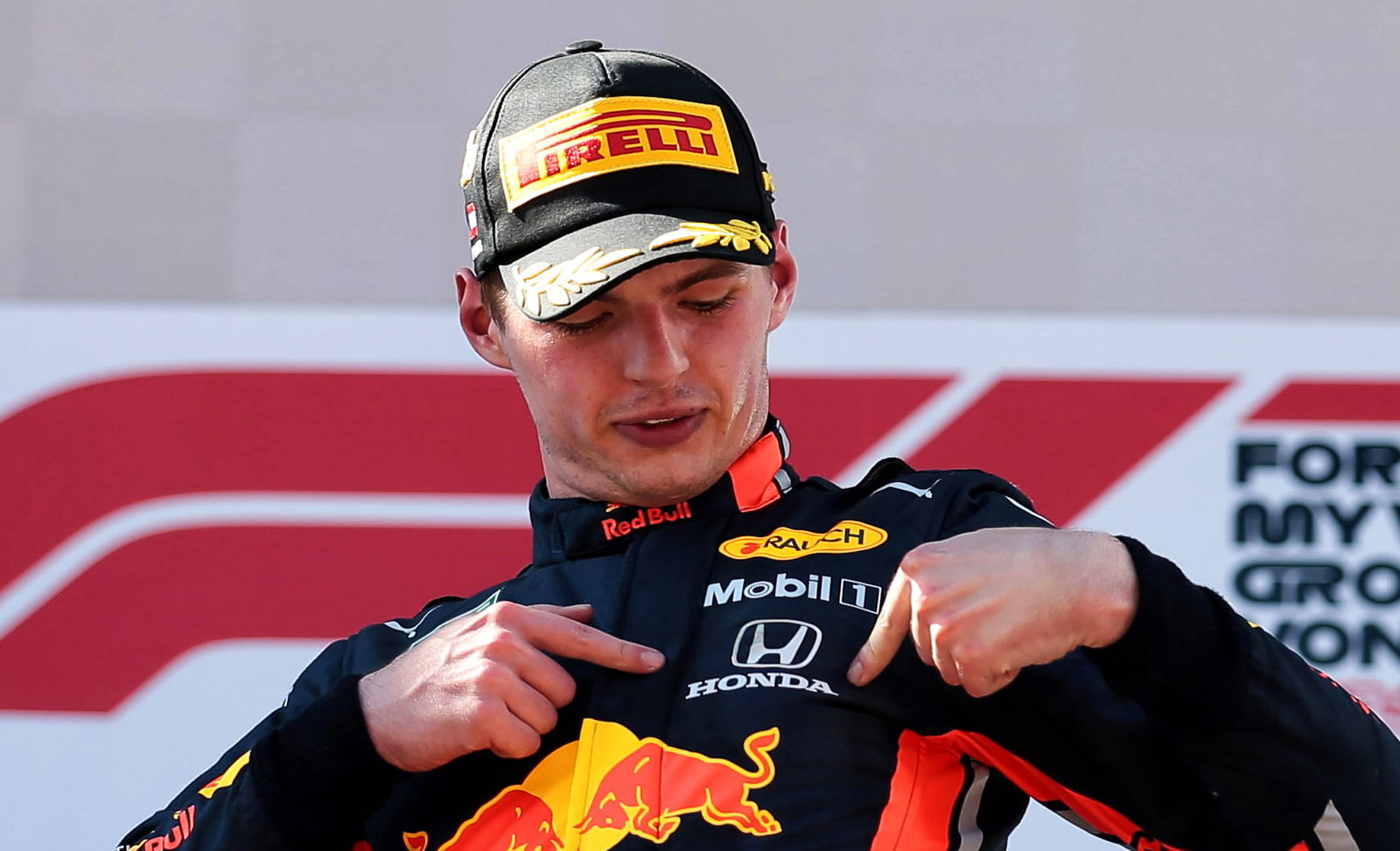
Why doesn’t winning in F1 impress us anymore?
Honda is committing itself to a carbon-neutral future, which seems ambitious without looking into the details. But look beyond the names we see in motorsport - such as Volvo, Volkswagen, Hyundai and more - and you’ll see Honda’s corporate strategy is leaning with the automotive industry as a whole.
And it’s not just because of obligations being thrust upon them by governments around the world to rein in emissions. It’s because the demands of customers are changing too.
Turn on the TV and car adverts are almost entirely pedalling models with either electric or hybrid powertrains against a backdrop of urban cities or rolling landscapes, rather than race tracks or open roads. The USPs are now range and fuel economy, not 0-60s times and emotional driving experiences.
This isn’t a chicken and egg situation though, because this is what your average Honda customer now looks for when researching a car. The trouble for F1 is it applies to Renault and Mercedes too, plus any other manufacturer that may have once considered an entry.
It explains Honda President Takahiro Hachigo’s rather extraordinary declaration that the industry is having a ‘once-in-one-hundred-years period of great transformation’
Hyperbole maybe, not least because there wasn’t much of a motor industry to speak of in 1920, it’s still a damning indictment towards F1 that suggests the numbers no longer add up for the average manufacturer. As it stands, they won’t for a long time either.
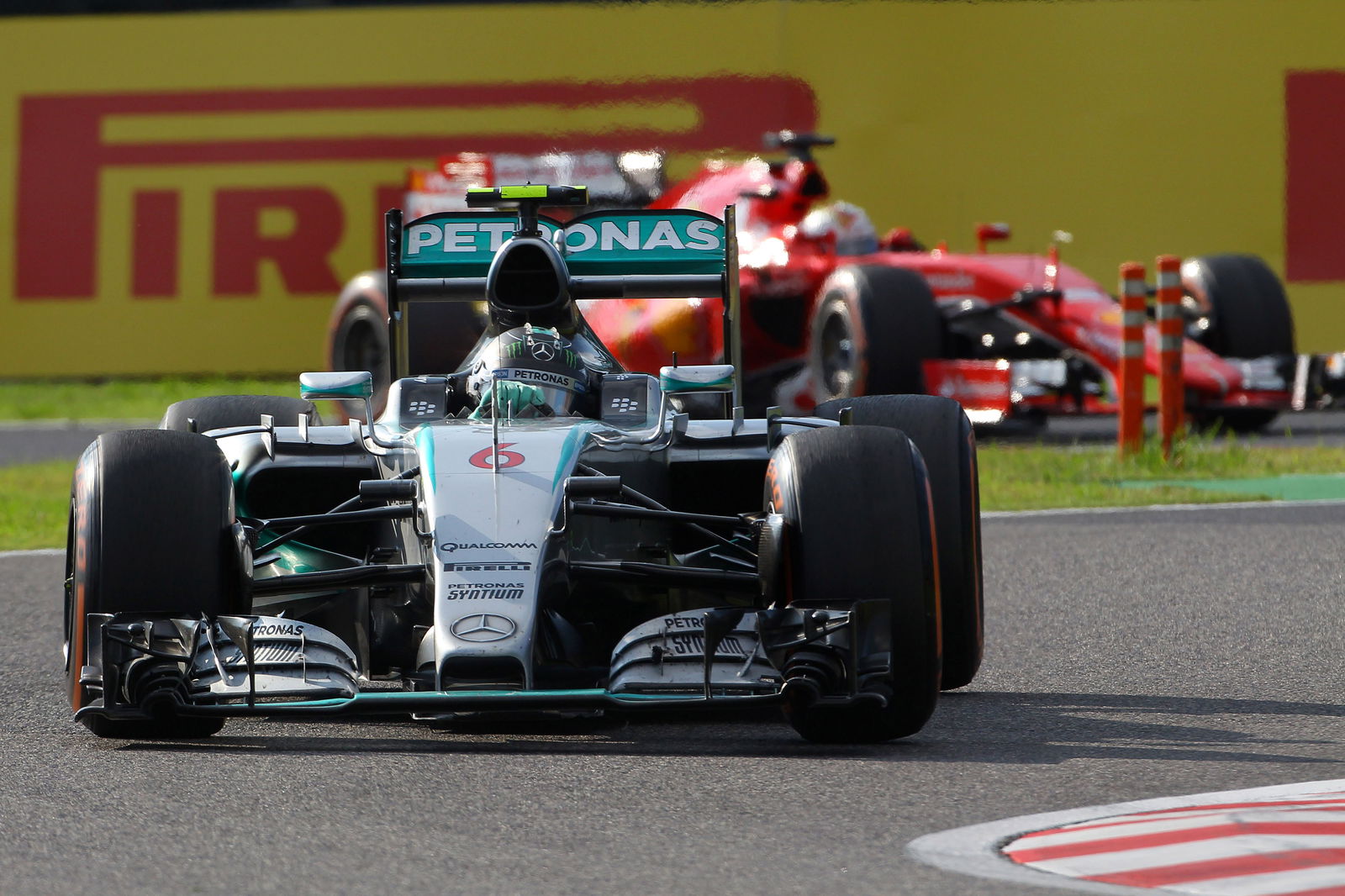
The success and failure of the V6 Hybrid era
It’s been six years since F1 transitioned into the V6 Hybrid power unit era but it’s subjective to argue whether it has been successful or not.
Crunch the numbers and you simply can’t help but be awe-struck by the exceptional levels of power, efficiency and regeneration these units extract and they are a testament to the engineering prowess of those that have gotten their head around the technology and extracted every possible ounce from it.
However, this formula ultimately finds itself between a rock and a hard place in that those who do follow F1 will focus in on the lack of noise or computer-generated breakdowns, whereas the sheer complexity of the power unit means the average consumer just isn’t terribly interested or - more pertinently now - can’t associate innovative, greener technologies with a sport where speed wins a race.
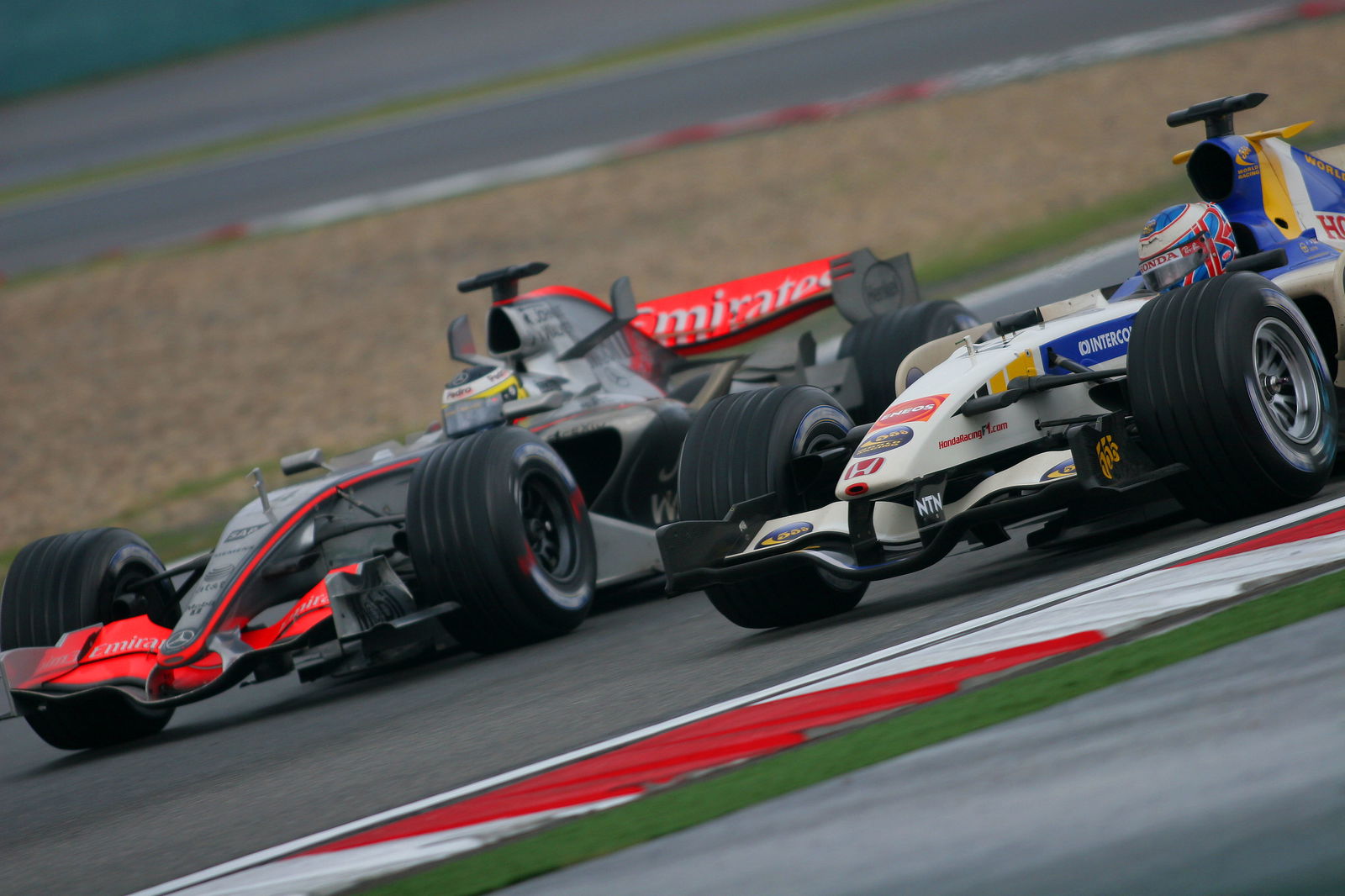
Is it time for F1 to scrap green tech for balls-out raw power?
It means the headache F1 has been putting off for years is becoming a Honda-branded migraine. Jean Todt fought hard for V6 Hybrid power units (partly because Volkswagen would have entered had Dieselgate not occurred), but market trends have accelerated far beyond their roadgoing relevance
If F1 - or rather, the FIA - sees manufacturers in its future, it will need to overhaul the formula again and double down on the greener side of the equation, but this then could come at the expense of the existing fans - and commercial rights holders Liberty - who want to see the best drivers in the fastest cars putting on a show.
As the V6 Hybrid era has shown this can be done to a point but the complexity and expense typified by Honda’s high-profile troubles is an instant turn-off.
Alternatively, F1 can abandon this and throw itself into reverting back towards raw, powerful, noisy - but perhaps not so green - engines if it means it can entice ambitious companies or lower volume manufacturers, like Aston Martin even if that is more of a branding exercise.
They may not be manufacturers, but Red Bull Racing shows what can be done even when your primary purpose is to sell cans of drink rather than cars, but F1 risks losing one or more of the three it’s left with if F1 becomes less about what it can market and more about the razzle dazzle.
Then again, as Honda’s exit shows, this could happen anyway if F1 doesn’t evolve beyond a current formula that is becoming more redundant to manufacturers with every passing year.
You can bet both Renault and Mercedes bosses will have had the same conversations as Honda, but while they’re here for now they will likely have related to much of what its outgoing rival has said.
Given teams and manufacturers weren’t falling over themselves to enter F1 when the going was good,the sport needs to think very hard about its future to ensure it isn’t squeezed further between that rock and hard place for fear of pleasing no-one.
